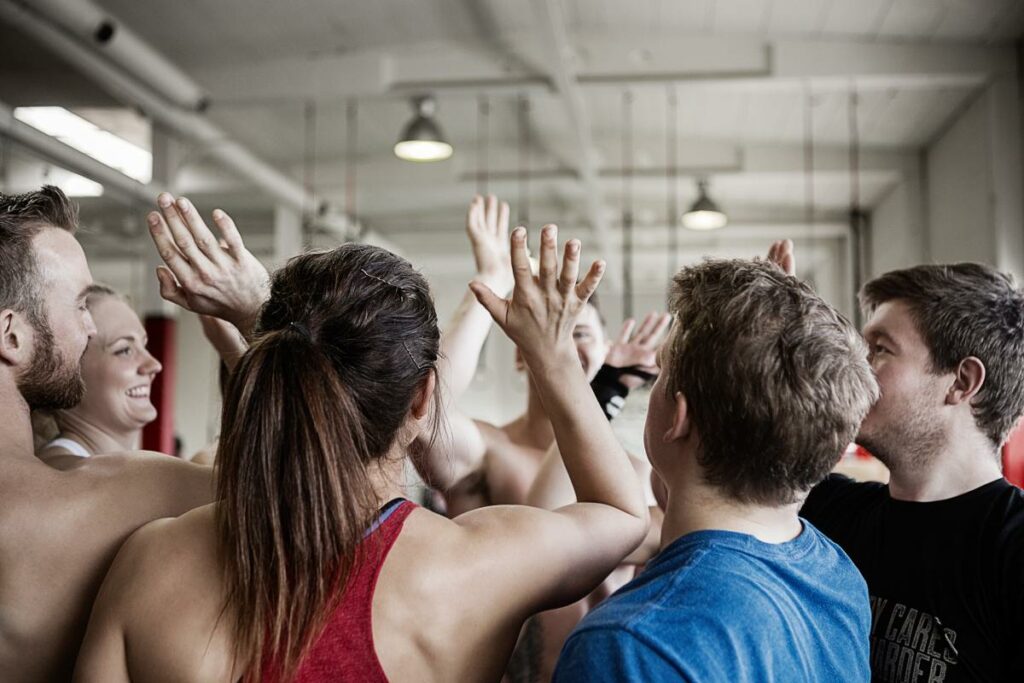Physical activity declines sharply after the age of 25. Experts say about 80% of adults aged 18-29 participate in regular physical activity, compared to just 50% of those aged 30-49 and a mere 40% of those aged 50-64. Given the significant health benefits of playing sports – including improved mental health, increased lifespan, and reduced risk of chronic diseases – it’s clear that more adults should be involved in organized sports. But where to start? Here are a few tips.

Choose A Sport You Enjoy
The first step is finding a sport you enjoy playing. There’s no point in signing up for soccer if you hate running around in the heat or joining a basketball league if you’re not competitive. If you’re unsure what you might like, ask for suggestions from friends or family, or look online for adult sports leagues in your area. Once you’ve found a few options, it’s time to give them a try.
Start Small And Ease Your Way In
If you haven’t played organized sports since high school (or even college), it’s essential to ease your way back in. You don’t want to get injured or burned out before you start. To avoid this, start by finding a recreational league with lower intensity levels.
For example, if you’re interested in basketball, look for a 3-on-3 league instead of a 5-on-5 league. Or, if you want to play soccer, find an over-30s club rather than an open league. Once you’ve gotten used to playing again and built up your stamina, you can move on to more competitive companies.
Get Fit Before You Start Playing
Playing sports is a great way to get fit, but it’s essential to make sure you’re physically ready before you start playing again. This means getting your heart and lungs in shape and strengthening your legs and core muscles.
The best way to do this is by working with a personal trainer or doctor who can help you create a workout plan to get you in shape without overstressing your body. They can also advise you on any medical conditions limiting your ability to play certain sports. Once you’re cleared for action, it’s time to hit the field (or court…or track).
Juggling A Busy Schedule
One of the main reasons adults don’t play sports is because they feel they don’t have the time. But with some planning and flexibility, it’s possible to fit sports into even the busiest schedules.
If you work full-time, look for leagues that play on weekends or evenings. Or, if you have young children, see if any sports leagues offer child care. And if you often travel for work, try to find a league in the city you’re visiting so you can play while you’re there.
Find A League That Fits Your Schedule
One of the biggest challenges for busy adults is finding the time to play sports. If you’re working full-time and have family obligations, it can be tough to carve out time for practices and games. This is why finding a league that fits your schedule is essential. Look for leagues that have fun on weeknights or weekends or offer flexible scheduling options. You should also look for leagues close to your home or work so you don’t have to waste time traveling to and from games.
Playing sports as an adult can be a great way to stay active and healthy, but finding a sport you enjoy and a league that fits your schedule is crucial. With a bit of research, you should be able to find the perfect fit for you.
Don’t Be Afraid To Try Something New
Just because you didn’t play a particular sport in high school or college doesn’t mean you shouldn’t try it now. Trying new sports is a great way to meet people and stay active. If you’ve always wanted to play lacrosse or try your hand at curling, there’s no better time than the present.
Who knows? You might just find your new favorite sport.
Benefits Of Playing Sports
Playing sports has many benefits, both on an individual level and for society. Here are just a few of the benefits of playing sports:
Physical Health
Playing sports is a great way to stay physically fit and healthy. It helps to improve cardiovascular health, increase muscle strength and flexibility, and reduce stress levels.
Mental Health
Playing sports can also positively impact mental health. It can help to reduce anxiety and depression, improve self-esteem and confidence, and provide a sense of purpose.
Social Benefits
Playing sports can also be a great way to meet and make friends. It can help you build relationships, develop teamwork skills, and learn about other cultures.
Economic Benefits
Playing sports can also have economic benefits. It can generate revenue for local businesses, create jobs, and boost tourism.
There are many reasons to play sports, both on an individual level and for society. So get out there and start playing!
Conclusion
Physical activity levels drop sharply after young adulthood, but there are significant health benefits associated with playing sports – including increased lifespan, improved mental health, and reduced risk of chronic diseases. If you’re looking to get started in adult sports leagues but don’t know where to begin, start by choosing a sport you enjoy and easing your way in with lower intensity levels. Make sure you get clearance from a doctor or personal trainer before starting any new fitness regimen and enjoy the camaraderie (and exercise) that comes with being part of a team!



